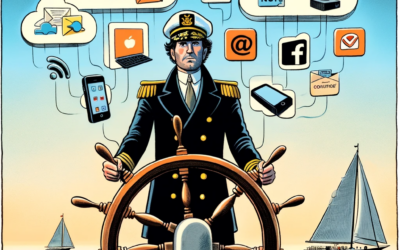In this paper I shall present not just the conscience of Huckleberry Finn but two others as well. One of them is the conscience of Heinrich Himmler. He became a Nazi in 1923; he served drably and quietly, but well, and was rewarded with increasing responsibility and power. At the peak of his career he held many offices and commands, of which the most powerful was that of leader of the S.S. – the principal police force of the Nazi regime. In this capacity, Himmler commanded the whole concentration-camp system, and was responsible for the execution of the so-called ‘final solution of the Jewish problem.’ It is important for my purposes that this piece of social engineering should be thought of not abstractly but in concrete terms of Jewish families being marched to what they think are bath-houses, to the accompaniment of loud-speaker renditions of extracts from The Merry Widow and Tales of Hoffman, there to be choked to death by poisonous gases. Altogether, Himmler succeeded in murdering about four and a half million of them, as well as several million gentiles, mainly Poles and Russians.
The other conscience to be discussed is that of the Calvinist theologian and philosopher Jonathan Edwards. He lived in the first half of the eighteenth century, and has a good claim to be considered America’s first serious and considerable philosophical thinker. He was for many years a widely-renowned preacher and Congregationalist minister in New England; in 1748 a dispute with his congregation led him to resign (he couldn’t accept their view that unbelievers should be admitted to the Lord’s Supper in the hope that it would convert them); for some years after that he worked as a missionary, preaching to Indians through an interpreter;, then in 1758 he accepted the presidency of what is now Princeton University, and within two months died from a smallpox inoculation. Along the way he wrote some first-rate philosophy: his book attacking the notion of free will is still sometimes read. Why I should be interested in Edwards’ conscience will be explained in due course. I shall use Heinrich Himmler, Jonathan Edwards and Huckleberry Finn to illustrate different aspects of a single theme, namely the relationship between sympathy on the one hand and bad morality on the other.
All that I can mean by a ‘bad morality’ is a morality whose principles I deeply disapprove of. When I call a morality bad, I cannot prove that mine is better; but when I here call any morality bad, I think you will agree with me that it is bad; and that is all I need. There could be dispute as to whether the springs of someone’s actions constitute a morality. I think, though, that we must admit that someone who acts in ways which conflict grossly with our morality may nevertheless have a morality of his own – a set of principles of action which he sincerely assents to, so that for him the problem of acting well or rightly or in obedience to conscience is the problem of conforming to those principles. The problem of conscientiousness can arise as acutely for a bad morality as for any other: rotten principles may be as difficult to keep as decent ones. As for ‘sympathy’: I use this term to cover every sort of fellow-feeling, as when one feels pity over someone’s loneliness, or horrified compassion over his pain, or when one feels a shrinking reluctance to act in a way which will bring misfortune to someone else. These feelings must not be confused with moral judgments. My sympathy for someone in distress may lead me to help him, or even to think that I ought to help him; but in itself it is not a judgment about what I ought to do but just a feeling for him in his plight. We shall get some light on the difference between feelings and moral judgments when we consider Huckleberry Finn.
Obviously, feelings can impel one to action, and so can moral judgments; and in a particular case sympathy and morality may punish in opposite directions. This can happen not just with bad moralities, but also with good ones like yours and mine. For example, a small child, sick and miserable, clings tightly to his mother and screams in terror when she tries to pass him over to the doctor to be examined. If the mother gave way to her sympathy, that is to her feeling for the child’s misery and fright, she would hold it close and not let the doctor come near; but don’t we agree that it might be wrong for her to act on such a feeling? Quite generally, then, anyone’s moral principles may apply to a particular situation in a way which runs contrary to the particular thrusts of fellow-feeling that he has in that situation. My immediate concern is with sympathy in relation to bad morality, but not because such conflicts occur only when the morality is bad.
Now, suppose that someone who accepts a bad morality is struggling to make himself act in accordance with it in a particular situation where his sympathies pull him another way. He sees the struggle as one between doing the right, conscientious thing, and acting wrongly and weakly,like the mother who won’t let the doctor come near her sick, frightened baby. Since we don’t accept this person’s morality, we may see the situation very differently, thoroughly disapproving of the action he regards as the right one, and endorsing the action which from his point of view constitutes weakness and backsliding. Conflicts between sympathy and bad morality won’t always be like this, for we won’t disagree with every single dictate of a bad morality. Still, it can happen in the way I have described, with the agent’s right action being our wrong one, and vice versa. That is just what happens in a certain episode in chapter 16 of The Adventures of Huckleberry Finn, an episode which brilliantly illustrates how fiction can be instructive about real life. Huck Finn has been helping his slave friend Jim to run away from Miss Watson, who is Jim’s owner. In their raft-journey down the Mississippi River, they are near to the place at which Jim will become legally free. Now let Huck take over the story: Compelling finish to this essay




